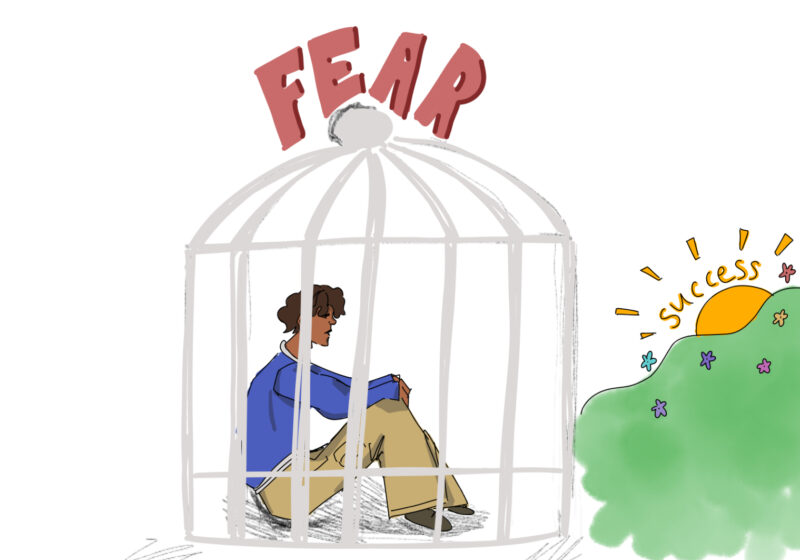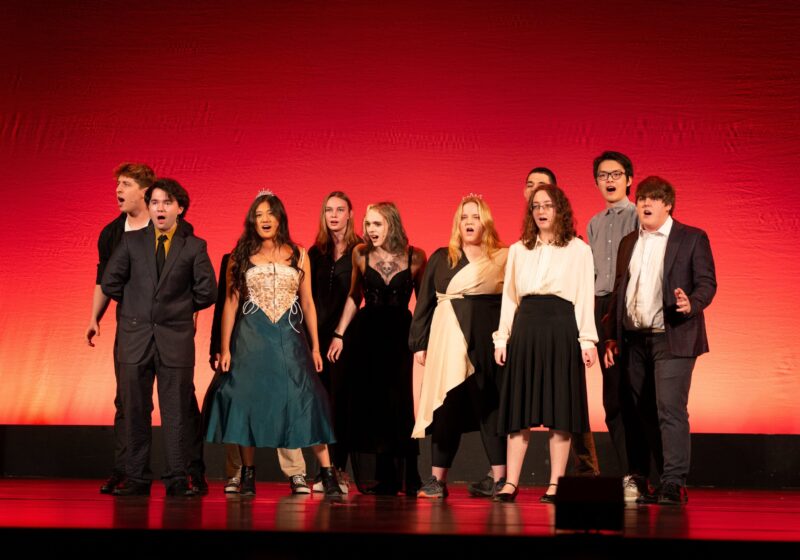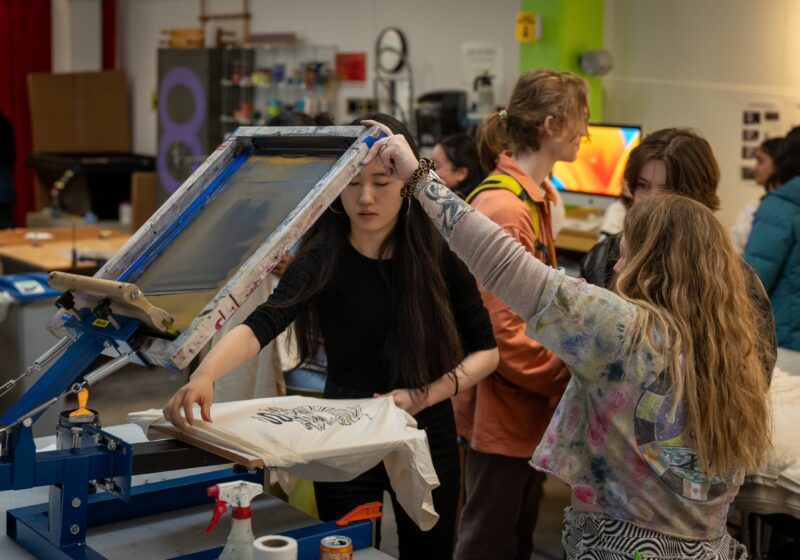Contention met compromise last Thursday night as College Democrats and College Republicans debated gun control.
Between bouts of back-and-forth between both sides, the debaters worked to determine where they could find common ground. The debaters’ attempts to find compromise while also defending their beliefs fit in with the purpose of the event.
“Tonight, we hope you leave here more informed on existing gun control legislation, on solutions to existing gun control legislation, and the differences between Democrats and Republicans on the issue,” opened sophomore Joey Loffredo, College Democrats’ vice president. “We wanted this event to be something where we see moments of compromise between Democrats and Republicans. As we go through this debate, we hope to have some kind of consensus on certain issues.”
College Republicans, which delivered its opening statement first, was represented by junior Jose Fernandez and sophomore Kyle Ruffner. Both argued that not only did data from other countries show that gun laws increased homicide rates, but that many murderers had had a criminal record before killing. They added that a majority of gun deaths occur in major cities comprising of about a quarter of the U.S. population.
Fernandez and Ruffner’s opponents from College Democrats, junior Kavya Bana and senior Alexis Wallace, argued that the current gun legislation is insufficient to prevent mass shootings and that liability insurance should be a requirement for all gun owners. Bana and Wallace also discussed current gun control legislation and compared gun control laws in two states — California and Louisiana.
Despite the differences between the two sides, the teams were able to find common ground on several issues, including a ban on bump stocks, funding more studies into the effectiveness of gun control, and improving background checks.
“I would support having universal background checks if we improved the system,” Fernandez said at one point in response to a question from Wallace. “The problem with the current system is that almost all of the people denied are false denials. If we could actually make it so that we wouldn’t have those false denials, I’d be in support of it.”
After a short back and forth, Fernandez and Wallace found that they agreed with each other on the topic.
It was a result that left Wallace satisfied: “Sweet.”
While the debate led to compromise, it came about for the opposite reason.
“We decided on the topic of gun control after we held a pretty heated discussion during our general meetings between the two clubs,” junior Kavya Bana, who debated on the side of College Democrats, said. “We thought it was also a relevant issue considering all of the shootings that have been occurring, specifically the ones in Las Vegas and Texas.”
It was these tensions that, to a degree, permeated the open forum portion of the event, when students pressed both sides of the debate to answer questions on the usefulness of liability insurance and on not discussing gun control immediately after a mass-shooting.
The tension reached a head when sophomore Jamal Holtz questioned Fernandez on why a handgun ban would decrease violent crime. Holtz, who worked for Washington, D.C. mayor Muriel Bowser, argued that the nation’s capital had a decrease in violent crime after its ban on handguns.
After Fernandez rebutted by saying that the number of homicides had actually increased, the two argued to the point at which they began discussing betting on the impact of the district’s handgun ban.
Both continued to push their side in emails to the Campus Times several days after the debate.
Holtz still felt the remainder of the debate was well done.
“It allowed people to hear different political spectrums about gun control,” he said. “I definitely agree with background checks on individuals who purchase guns. One thing I would’ve liked to hear more was individuals’ opinions on purchasing guns [on the] same day.”
The debaters agreed, and felt the event overall was a success.
“College Republicans and College Democrats take a lot of pride in how well we work together,” Wallace said. “We went into this ‘debate’ with the idea that we could end with some sort of list of things we could agree should happen. I think we achieved that, and I’m hopeful that even though we didn’t agree on everything, the students that attended have a better understanding of the issue and the various policy proposals put forward.”
Ruffner agreed with Wallace and stressed the importance of compromise on hot political issues.
“With how divisive a lot of the political rhetoric is on gun control, it is beneficial for people to hear the arguments from each side,” Ruffner said. “More importantly, [we must] realize there is a some common ground and that we are all working towards keeping guns out of the hands of bad people and in the hands of good people, but just have some different ideas on how to get there.”
Correction (11/20): The original version of this article erroneously listed senior Alexis Wallace as a sophomore and mistakenly attributed a quote by sophomore Joey Loffredo to the debate’s moderator.






